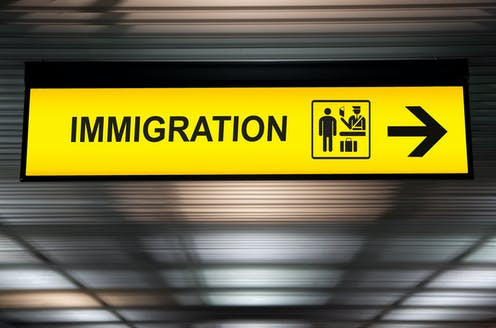Immigration Minister Pledges To Challenge Appeals Tribunal's Visa Rulings That Spared Convicted Offenders

The Australian Department of Home Affairs has found itself in hot water after acknowledging that it had neglected to notify Immigration Minister Andrew Giles about several legal challenges that let visa holders stay in the country even after committing major crimes.
On Tuesday, Giles promised to challenge tribunal rulings that let foreign people keep their visas despite grave criminal convictions, according to Sydney Morning Herald.
Home Affairs Minister Stephanie Foster disclosed that the department failed to sufficiently alert Giles about these important cases at a parliamentary committee hearing.
"The department did fail him, we did not meet every protocol," Foster said.
The admission comes as ministerial directives influencing visa decisions came under closer examination, especially those related to judgments made by the Administrative Appeals Tribunal.
The dispute highlights more general issues with immigration law and how the government handles revoked visas.
The issue came to the forefront after a New Zealand man was allowed to remain in Australia by the Administrative Appeals Tribunal, even though he was found guilty of raping his stepdaughter.
Giles said even though the government had canceled such convicts visas, the decision was overruled by the tribunal.
"Direction 99 did not, and does not, decrease the importance placed on expectations such as the ... protection of the community from crime. This Speaker remains unchanged under this government. Community safety remains the highest priority of this government, and I say again, these were decisions made by an independent tribunal," Giles said.
Opposition leaders like Dan Tehan have expressed worries about the lack of openness surrounding the number of cases affected by these orders, and this move comes in response to their criticisms.
Meanwhile, Opposition home affairs spokesman James Paterson claimed that the government was in charge of what he referred to as a "detainee crime spree," underscoring the necessity of acting quickly to address any concerns that may be present when prisoners were freed, AAP reported.
As the discussion heats up, questions remain about the government's response to the High Court's decision on indefinite immigration detention and its use of emergency powers to reduce threats to public safety.
© Copyright 2025 IBTimes AU. All rights reserved.





















